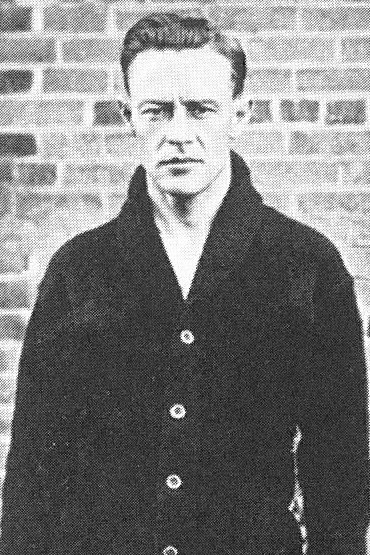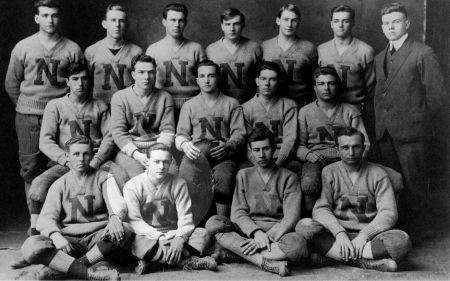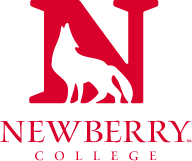Dutch MacLean: Life of a Legend
by Jay Salter '19 | External Communications Coordinator - June 5, 2023

The name “MacLean” has been a monumental part of the Newberry College story for 110 years — first as that of a living legend, then as that of a hub of athletics and campus life. As historic MacLean Gymnasium gains new life, so should the little-known story of its incredible eponym.
Ohio-bred Fred Douglas “Dutch” MacLean (1888 – 1964) first entered Newberry history when he transferred from Brown University in 1913, at the behest of the Indians’ first coach and one-man athletics department Raymond Thomas, who had seen him in action. The ban on football had just been lifted, and Thomas needed the best for the College’s first intercollegiate squad. Though he stood only about five-foot-five, MacLean quickly made a name for himself as Newberry’s first quarterback.
“He never used a leather helmet. He just wrapped a black sweatband around his head to hold his ears in, because the other guys like to pull his ears. This was in the very early days of football, back when it was rough and tumble,” said Maj. Fred MacLean III, a retired Army chaplain and Dutch’s grandson. “They gave him a nickname, ‘the Flying Dutchman,’ because when a guy would get tackled and they’d all pile on, they would pick up Dutch, throw him over the pile with the ball, and he’d hit the ground running and score. They were so effective that they outlawed that play. But the name stuck, and they shortened it to ‘Dutch.’”

Along with football, Dutch lettered in baseball and basketball before graduating in 1915. That same year, a German submarine torpedoed the British liner RMS Lusitania, killing 1,195 passengers, including 123 Americans. Like many young men, Dutch was eager to fight.
“Dutch and five of his friends all got together and decided America’s not getting into World War I fast enough. So, they were all going to go up to Canada and enlist,” said MacLean. “When he got up to Ottawa, none of the other boys showed up, but his sense of duty was so strong that it didn’t matter.”
Dutch joined Princess Patricia's Canadian Light Infantry, and with his strong pitcher’s arm he lobbed grenades from French trenches. According to newspaper reports, he was gassed at the Battle of Vimy Ridge in April 1917 and spent six months in a London hospital. Unbeknownst to him, in the chaos of war, he was reported as killed in action. After being released from hospital, Dutch transferred to the U.S. Army, where he served until 1920. Upon returning home to Youngstown, Ohio, he surprised his family and friends with the realization that he was indeed alive.
Devastatingly, MacLean's sweetheart from Newberry, Woodie Bowman, had married another man, believing that Dutch had been killed in France.
"She fell in love with him, but he wasn't ready to get married. He was off to war, and they were going to get married after he came back," said MacLean. "She had married after they told her that he was dead. She married a salesman, and unfortunately, as I understand it, he suffered an accidental gunshot wound while he was cleaning his gun and he died [in 1921]. After he was back teaching at Newberry, they renewed the relationship, fell in love again, and eventually they were married."
Dutch returned to Newberry in 1921 to teach English and to coach the three sports in which he excelled as a player. That year, the men’s basketball team won the first of four consecutive state championships. In 1922, his football team defeated The Citadel for the first time on the brand-new Setzler Field. The following year, MacLean saw the completion of new gymnasium, which would be dedicated in his honor in 1955. His 1924 football squad achieved a season record of 8-2, which stood unmatched until 1971 and unbroken until 2006. As of 2023, Dutch remains Newberry College’s longest-serving head football coach with 17 seasons.
After leaving Newberry in 1938 to pursue other callings, Dutch returned to lead the Indian Club, the athletics booster organization, from 1957-62. It was in these latter years that his grandson remembers summers and holidays visiting him in Newberry.
“You wouldn’t think of a rough and tumble football player as being well-versed in Shakespeare,” said MacLean. “I don't remember ever seeing him without a three-piece suit, and he always had a whistle and a stopwatch. He would talk with me about the principles of character, the value of duty, the sense of what’s right.”
MacLean was posthumously inducted in 1976 as one of the first two members of the Newberry College Athletic Hall of Fame.
To learn more and support the renovation of MacLean Gymnasium, visit newberry.edu/BuildingTheBerry/MacLean or contact Bill Tiller at 803.321.5676 or William.Tiller@newberry.edu.
A shorter version of this article appeared in the spring 2023 issue of Dimensions, the magazine for alumni and friends of Newberry College. Access the digital version here.


 Close
Close